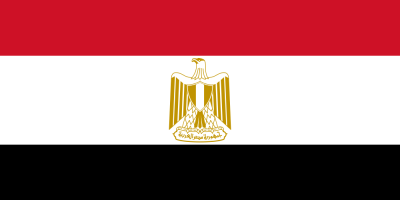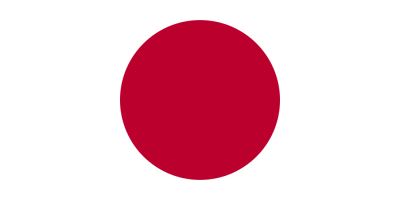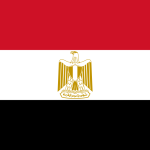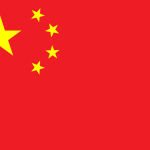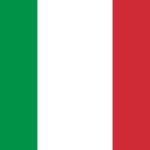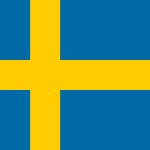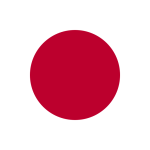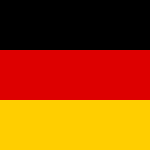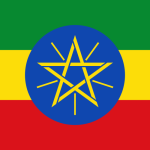Singapore flag color codes features a bright red background with a white crescent moon and five white stars. The bold design has become an iconic symbol of the island city-state. If you want to recreate the distinctive Singapore flag for a digital graphic, website, or other design project, you will need the official Singapore flag color codes. This article provides the precise HTML HEX, RGB, PANTONE, HSL, CMYK, HWB, and NCOL values for the red and white colors of the Singaporean flag. With access to these official Singapore flag color codes, you can accurately match the colors to incorporate the national flag of Singapore into your own projects. Whether you need the red for the background or white for the moon and stars, this article will give you the Singapore flag color codes you need.
Table of Contents
What are the colors of Singapore flag?
The colors of the Singapore flag are:
- Red – This is the background color of the flag.
- White – This is the color of the crescent moon and five stars on the flag.
Specifically, the red used is Pantone 032. The white is not associated with a specific Pantone color, but most descriptions state it is a bright, pure white.
The red represents universal brotherhood and equality of man. The white symbolizes pervading and everlasting purity and virtue. The crescent moon represents a young nation on the ascendant, and the five stars depict Singapore’s ideals of democracy, peace, progress, justice and equality.
So in summary, the two colors are a vivid red and bright white. These colors hold symbolic meaning related to Singapore’s values and aspirations as a nation.
Singapore flag color codes & Color Names:
RED
| Color Model | Value |
|---|---|
| HTML | #ED3347 |
| HEX | ED3347 |
| RGB | (237, 51, 71) |
| PANTONE | 032 C |
| HSL | (352, 81%, 55%) |
| CMYK | (0, 79, 70, 7) |
| HWB | (352, 7, 7) |
| NCOL | N/A |
WHITE
| Color Model | Value |
|---|---|
| HTML | #FFFFFF |
| HEX | FFFFFF |
| RGB | (255, 255, 255) |
| PANTONE | N/A |
| HSL | (0, 0%, 100%) |
| CMYK | (0, 0, 0, 0) |
| HWB | (0, 100, 0) |
| NCOL | N/A |
BLUE
| Color Model | Value |
|---|---|
| HTML | #1C3C70 |
| HEX | 1C3C70 |
| RGB | (28, 60, 112) |
| PANTONE | 280 C |
| HSL | (221, 60%, 29%) |
| CMYK | (92, 80, 7, 56) |
| HWB | (221, 56, 56) |
| NCOL | N/A |
What is the meaning of colors in the Singapore flag?
The colors of the Singapore flag represent the following symbolic meanings:
Red – The red background represents universal brotherhood and equality. It signifies unity regardless of race or religion.
White – The white crescent moon and five stars represent purity, virtue, and perfection. They depict the ideals of progress, peace, equality, justice and democracy.
In summary:
- Red stands for brotherhood, equality and unity among the people of Singapore.
- White represents virtues like purity, peace, equality, justice and democratic ideals.
The vivid red evokes the spirit of Singaporeans coming together as one nation, while the white highlights the country’s noble aspirations. Together, the colors reflect Singapore’s multicultural identity and progressive values as a nation. They reinforce national pride and patriotism among Singaporeans.
So in essence, red symbolizes the unity of Singaporeans and white reflects the ideals and virtues that the country strives to uphold as a society. The contrast and meaning behind these two colors make them iconic identifiers of the Singapore flag.
Explore More Flag Colors:
- Estonia Flag Color Codes
- Algeria Flag Color Codes
- Bangladesh Flag Color Codes
- Lithuania Flag Color Codes
FAQs: Frequently Asked Questions:
Is it expensive to live in Singapore?
Here are some key considerations:
Housing: Housing costs, including rent and property prices, are significant contributors to the high cost of living. The prices vary depending on the type of housing, location, and amenities.
Transportation: While public transportation is efficient and well-developed in Singapore, owning a car can be expensive due to high taxes and fees associated with vehicle ownership.
Food: Dining out in restaurants and buying groceries can be relatively expensive, although there is a wide range of options available at different price points.
Healthcare: While Singapore has a high standard of healthcare, medical services can be costly. It’s common for residents to have health insurance to cover medical expenses.
Education: If you have children and plan to enroll them in international schools or private institutions, education costs can be a significant expense.
What is the famous in Singapore?
Some of the things that make Singapore famous include:
Marina Bay Sands: This iconic integrated resort is famous for its stunning architecture, rooftop pool, and the SkyPark, which offers panoramic views of the city skyline.
Gardens by the Bay: A futuristic park featuring the Supertree Grove, Cloud Forest, and Flower Dome, offering a blend of nature and cutting-edge design.
Sentosa Island: A popular resort island with attractions like Universal Studios Singapore, S.E.A. Aquarium, Adventure Cove Waterpark, and beautiful beaches.
Merlion Park: Home to the iconic Merlion statue, a symbol of Singapore, with stunning views of the city and Marina Bay.
Singapore Zoo and Night Safari: Renowned for their innovative and immersive exhibits, providing unique wildlife experiences.
Chinatown, Little India, and Kampong Glam: Vibrant neighborhoods showcasing Singapore’s multicultural identity, each with its distinct cultural and culinary offerings.
Hawker Centers: Singapore is famous for its diverse and delicious street food. Hawker centers like Maxwell Food Centre and Lau Pa Sat are popular for local dishes.
What is the capital of Singapore?
The capital of Singapore is the city of Singapore itself. Unlike some countries where the capital and the largest city may have different names, Singapore is both a city and a country, and its capital is also called Singapore.
What are 5 facts about Singapore?
City-State and Island Nation: Singapore is a city-state and an island nation located at the crossroads of Southeast Asia. It consists of one main island and numerous smaller islands.
Multicultural Society: Singapore is known for its cultural diversity and harmonious coexistence of various ethnic groups. The major ethnic communities include Chinese, Malay, Indian, and Eurasian, contributing to a rich tapestry of traditions, languages, and cuisines.
Economic Powerhouse: Despite its small size, Singapore has become a global economic powerhouse. It has a highly developed and diverse economy, with strengths in finance, trade, technology, and manufacturing. The country is home to one of the world’s busiest ports and is a major financial hub in the Asia-Pacific region.
Strict Laws and Cleanliness: Singapore is known for its strict laws and regulations, contributing to its reputation as one of the cleanest and safest cities in the world. Chewing gum is regulated, and there are fines for littering and other offenses. The focus on cleanliness and orderliness is evident in the well-maintained public spaces.
Garden City: Singapore has earned the nickname “Garden City” due to its commitment to green spaces and environmental sustainability. Despite urban development, the city incorporates extensive parks and greenery, including the famous Gardens by the Bay and the Singapore Botanic Gardens, a UNESCO World Heritage Site.
Is it hard to get job in Singapore?
Here are some factors to consider:
Industry Demand: Certain industries, such as finance, technology, healthcare, and logistics, have high demand for skilled professionals. Researching the demand in your field can give you insights into job opportunities.
Qualifications and Skills: Singapore places emphasis on qualifications and skills. Having relevant education, experience, and skills that are in demand can increase your chances of finding employment.
Work Pass Requirements: If you are a foreigner, you will typically need a valid work pass to work in Singapore. The specific pass required depends on factors like your salary, qualifications, and the type of work you will be doing. The Ministry of Manpower (MOM) in Singapore manages work pass applications.
Networking: Networking is crucial in Singapore, as it is in many places. Building professional connections through networking events, industry forums, and online platforms can help you learn about job opportunities and potential employers.
Language Skills: English is the primary language of business in Singapore. Having strong English language skills is important for most professional roles.
How much salary is good in Singapore?
Here are some general considerations:
Basic Living Expenses: Housing, transportation, utilities, and groceries are major components of living expenses. Rental costs can be a significant factor, and housing choices can greatly impact your budget.
Education Expenses: If you have children, education expenses for international schools or private institutions can be substantial.
Healthcare: While healthcare standards are high, medical expenses can be significant, especially if you do not have comprehensive health insurance.
Saving and Investment Goals: Consider your financial goals, such as saving for the future, investments, and retirement planning. The ability to save and invest for the future is often a key consideration.
Industry Standards: Salaries vary across industries. Certain sectors, such as finance, technology, and healthcare, tend to offer higher salaries compared to others.
Experience and Qualifications: Your level of experience, qualifications, and skills play a crucial role in determining your earning potential.
Negotiation Skills: In some cases, the salary you receive may be negotiable. Strong negotiation skills can impact your overall compensation package.
Do you need a visa for Singapore?
Here are the main categories for entry into Singapore:
Visa-Free Entry: Citizens of many countries, including the United States, European Union member states, Canada, Australia, and several others, are eligible for visa-free entry into Singapore for short visits (typically up to 30 to 90 days, depending on the nationality). Check the Immigration and Checkpoints Authority (ICA) website or contact the nearest Singaporean embassy or consulate to confirm if you are eligible for visa-free entry.
Electronic Arrival Card (E-Visa): Some nationalities are required to obtain an Electronic Arrival Card (E-Visa) before traveling to Singapore. This electronic visa allows for short visits and can be obtained online.
Visit Visa: For nationals who require a visa, they can apply for a Visit Visa through the nearest Singaporean embassy or consulate. Visit Visas are suitable for those planning to stay in Singapore for longer periods or for specific purposes like work, business, or family visits.
Work Passes: If you intend to work or engage in employment-related activities in Singapore, you will generally need a valid work pass. The type of work pass required depends on factors such as salary, qualifications, and job type.
What countries are close to Singapore?
Here are the countries that are close to Singapore:
Malaysia: Singapore is connected to the Malaysian state of Johor by the Johor–Singapore Causeway in the north and the Tuas Second Link in the west.
Indonesia: The Indonesian islands of Batam and Bintan are located to the south of Singapore, across the Singapore Strait.
Why is Singapore so famous?
Singapore is famous for several reasons, and its global recognition is attributed to various factors:
Economic Success: Singapore has achieved remarkable economic success, evolving from a developing nation in the 1960s to one of the world’s wealthiest and most developed countries. Its strategic location, efficient infrastructure, and business-friendly policies have contributed to its status as a global economic hub.
Financial Center: Singapore is a major international financial center, home to numerous multinational corporations, banks, and financial institutions. The city-state is known for its robust financial services sector and is a key player in global finance.
Cultural Diversity: Singapore is celebrated for its rich cultural diversity, harmonious coexistence of different ethnic groups (Chinese, Malay, Indian, Eurasian), and the blend of traditions, languages, and cuisines. This cultural tapestry contributes to the vibrant and cosmopolitan atmosphere.
Cleanliness and Safety: Singapore is renowned for its cleanliness, well-maintained public spaces, and safety. Strict laws and regulations contribute to the city’s orderly environment and low crime rates.
Efficient Public Transport: Singapore boasts a highly efficient public transportation system, including the Mass Rapid Transit (MRT) and extensive bus networks. The accessibility and connectivity of the public transport system contribute to the city’s ease of mobility.
Gardens by the Bay: The iconic Gardens by the Bay is a futuristic park featuring the Supertree Grove, Cloud Forest, and Flower Dome. It has become a symbol of Singapore’s commitment to green spaces and environmental sustainability.
Marina Bay Sands: The Marina Bay Sands integrated resort, with its distinctive architecture, rooftop pool, and SkyPark, is a well-known landmark. It has become an iconic symbol of Singapore’s modernity and sophistication.
Singapore Changi Airport: Changi Airport is consistently ranked as one of the best airports globally, known for its efficiency, amenities, and passenger experience. It serves as a major air hub in the region.

